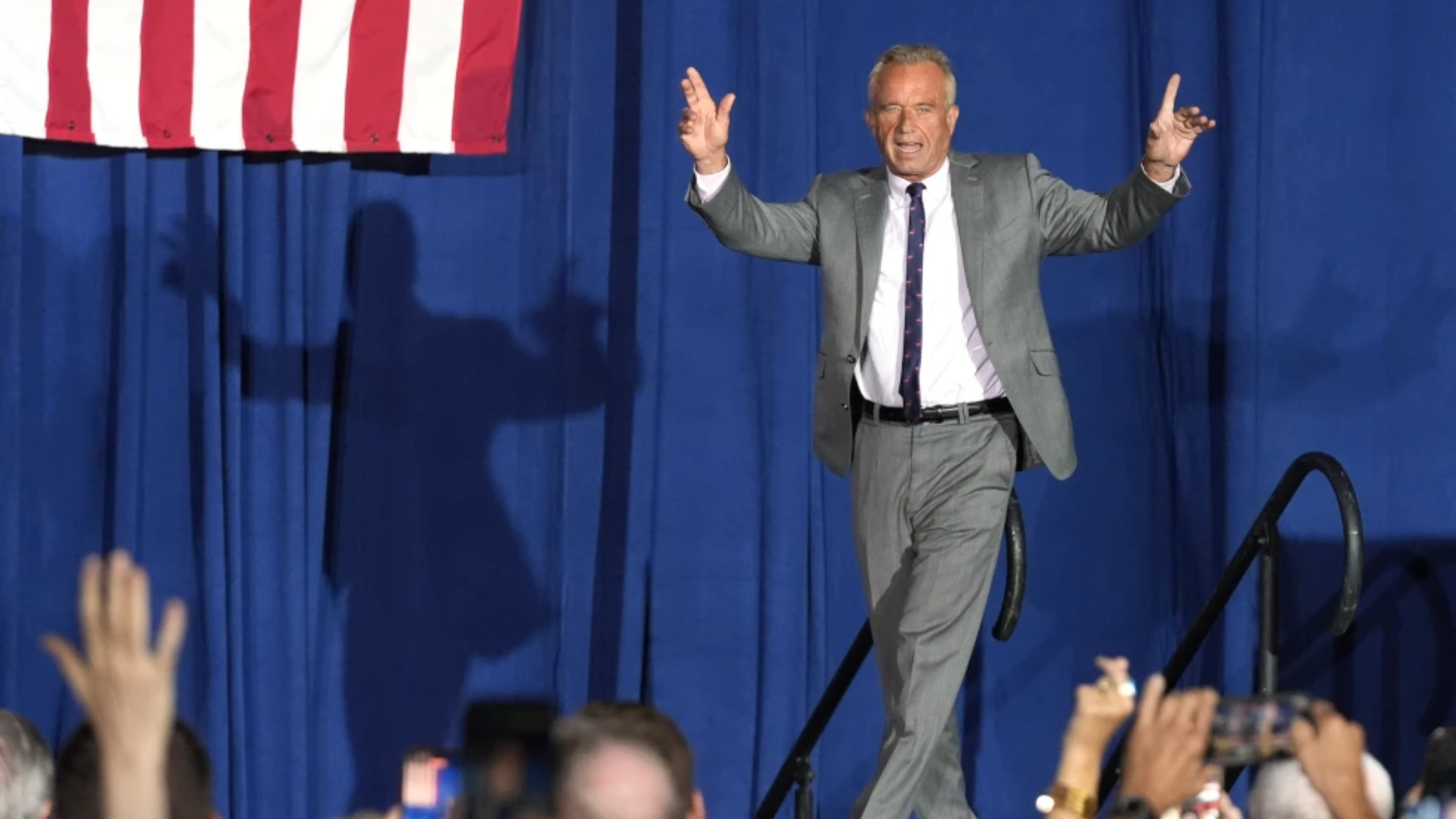GUANTANAMO BAY NAVAL BASE, Cuba (AP) — An attempt to get the Sept. 11 terror case moving again quickly came to an abrupt end Monday as at least two of five defendants identified a new courtroom interpreter from their time in secret CIA custody before they were taken to the U.S. Navy base at Guantanamo Bay, Cuba, for a long-stalled military trial.
A hearing in the high-security courtroom had just begun when defendant Ramzi Binalshibh told the judge that he recognized the male interpreter sitting next to him at the defense table from his time in the so-called "black sites" overseas, where prisoners were subjected to treatment widely regarded as torture.
"The problem is I cannot trust him because he was working at a black site with the CIA and you know I am from there," said Binalshibh, a 42-year-old from Yemen who was captured in Pakistan in 2002, speaking in English.
The identification of the man as someone who may have worked for the CIA, which was backed by at least one other defendant, led to defense fears that the interpreter may have been deliberately planted by the government.
If so, it would be the latest in a series of such incidents, including the discovery of listening devices disguised as smoke detectors in attorney-client meeting rooms and the revelation that the FBI had questioned support staff on the defense teams and directed them not to tell anyone about it.
Defense attorney Cheryl Borman, who represents Walid bin Attash, said her client was "visibly shaken," by the presence in the courtroom of someone who "participated in his illegal torture."
The attorney said the investigation ordered by the judge should be carried out not by the prosecution but by a Department of Justice special review team already looking into the FBI questioning of defense team staff.
"If this is part of the pattern of infiltration by government agencies into the defense teams, then the right people to be addressing this issue are not in the courtroom," said Bormann, a Chicago civilian lawyer who specializes in death penalty cases and wears a floor-length black garb known as an abaya in court to avoid offending the sensibilities of her Muslim client.
The judge directed both sides to look further into the issue and said court would reconvene Wednesday. It brought a sudden end to a hearing that was supposed to focus on questions about the FBI investigation and whether Binalshibh should be removed as a defendant so that proceedings could resume for the other four defendants.
All five men face charges that include terrorism, hijacking and nearly 3,000 counts of murder for their alleged roles planning and providing logistical support to the Sept. 11, terrorist attack. The defendants, including the self-proclaimed mastermind of the attack, Khalid Sheikh Mohammed, face the death penalty if convicted, though the proceedings have been plagued with problems from the start.
The men were all held for several years by the CIA, subjected to the harsh interrogations as part of the government's Rendition, Detention and Interrogation program. They were taken to Guantanamo in 2006. Their trials were delayed by legal issues, followed by a debate over whether to prosecute them in a U.S. civilian court or at the base in Cuba.
They were arraigned in May 2012 in a hearing that stretched on for 13 hours as the men refused to use the courtroom translation system or respond to the judge. Further delays arose because of weather and other logistical issues and a debate over rules for handling the large amount of classified evidence in the case.
There have also been repeated complaints about government monitoring, including the revelation in February 2013 that there were microphones disguised as smoke detectors in the meeting rooms. Military officials insisted they had been installed years earlier and were never used to eavesdrop, but lawyers took to scribbling notes with their clients.
More recently, the case has bogged down with questions about Binalshibh's mental capacity to stand trial following repeated outbursts in court over what he said were government efforts to disturb his sleep, as well as the apparent FBI investigation of defense teams, the scope and nature of which has not been publicly disclosed.
Prisoners also have complained that the military started using female guards to move them, offending their faith
The chief prosecutor, Army Brig. Gen. Mark Martins, told the court that the government had looked into the FBI questioning of support staff and "can assure there is no attempt to have someone be put into the defense teams" to monitor them."
Regarding the prisoners' new allegation about the interpreter, he said officials would need more time to "collect the facts and understand what the issue is."
Bormann was skeptical, calling the identification of the interpreter the "biggest coincidence ever," if confirmed. "It just strikes me that there is a huge issue here."
Copyright 2015 by The Associated Press. All Rights Reserved. This material may not be published, broadcast, rewritten or redistributed. (AP Photo/Charles Dharapak, File)





















